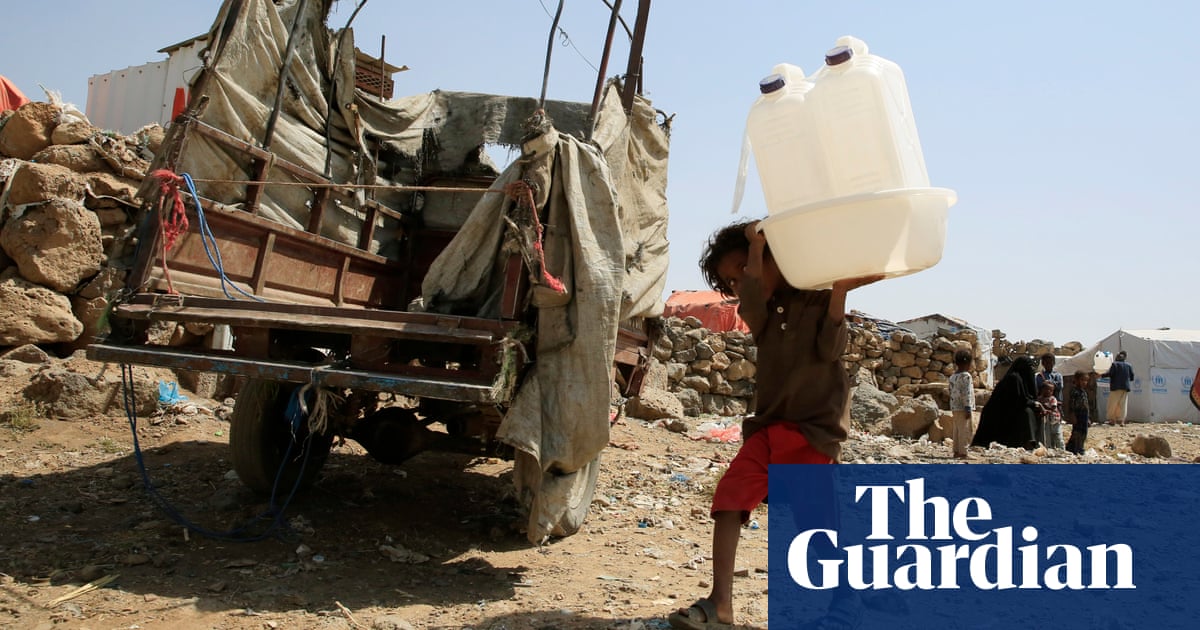
The British government has been accused by NGOs and trade unions of “chasing colonial post-Brexit fantasies” at the expense of the world’s poorest as they urge Liz Truss to keep aid focused on poverty reduction rather than geopolitical manoeuvring.
In a joint letter to the foreign secretary, the group criticises the rebranding of the UK’s development investment arm, which will see the Commonwealth Development Corporation (CDC) become British International Investment (BII) next year.
“This new strategy and name change appears to repurpose BII as an institution that focuses solely on private-sector investment and profit-making, rather than development goals and poverty reduction,” write the 12 organisations, including Global Justice Now, the Trades Union Congress (TUC), the Catholic Agency for Overseas Development (Cafod) and Unison.
“Rather than investing in general job creation and projects with only the most tenuous relation to poverty reduction, in the hope that the economic benefits will trickle down to the world’s most marginalised communities, UK aid must retain a strong poverty reduction mandate … and support decent job creation to retain its international credibility,” they said.
When Truss announced the overhaul of the CDC last month, she billed it as part of the “network of liberty” strategy of the Foreign, Commonwealth and Development Office (FCDO), outlining plans for BII to leverage private capital to invest in countries across Asia, Africa and the Caribbean.
Observers said the implicit message was that the government sees BII as offering an alternative to loans from China, which is estimated to have lent about $1.5tn (£1.1tn) in direct loans and trade credits to more than 150 countries around the globe.
The shift, said Truss, would help “grow economies across Asia, Africa and the Caribbean while drawing them closer towards free-market democracies and building a network of liberty across the world”.
But NGOs, already furious at the government’s slashing of the aid budget from 0.7% to 0.5% of gross national income, have condemned not only the rhetoric but also the practical changes to the way in which British aid is spent.
In the letter, also sent this week to Diana Layfield, the new chair of the CDC, the NGOs and unions warn that increased funding for BII will “almost certainly lead to catastrophic cuts to other, grant-based areas of aid spending”.
“Ultimately, this means that more UK aid will be directed to projects, countries and sectors that provide an economic benefit to the UK, rather than to the world’s most marginalised communities,” they add.
“Especially in such a time of global health crisis and climate breakdown, what is left of the reduced UK aid budget should be prioritised for agencies with a proven track record of delivering on development goals.”
It is “highly concerning”, the letter says, that the changes appear to have been made without consulting civil society or unions.
Frances O’Grady, general secretary of the TUC, said: “After being left in the dark on plans for British International Investment, it’s time for ministers to consult with unions and other civil society groups so that we can ensure decent jobs and poverty reduction are at the heart of the institution’s work.”
Daniel Willis, development finance campaigner at Global Justice Now, said: “There is a clear role for UK aid to play in supporting the ‘global south’ during the pandemic and against climate change, but instead the government is chasing colonial post-Brexit fantasies.
“After already cutting the aid budget by £4bn this year, the government’s expansion and rebrand of BII’s role will see grant aid squeezed further and more funds going to for-profit, ineffective, private-sector projects instead.”
The CDC has said it will invest £3bn specifically to help emerging economies in Africa and Asia meet their Paris agreement goals.
But Graham Gordon, head of public policy at Cafod, said that at the Cop26 summit in Glasgow last month, developing countries had “made a clarion call” for more climate finance in the form of grants rather than loans, and that the new proposals for BII could result in those countries being saddled with yet more debt.
“As secretary of state with direct oversight of BII, Liz Truss should commit all future UK climate finance as grants not loans, and stop any future disbursements to BII unless they can show how they will provide grant-based finance,” he said.
Unison’s international officer, Mark Beacon, said: “Ministers shouldn’t be channelling the diminishing aid budget into the private sector. They must instead fund quality public services to reduce global challenges such as poverty and inequality.”
An FCDO spokesperson said: “No country in the world has ever escaped poverty without reliable, long-term investment. Reliable and honest sources of finance are needed in low and middle-income countries to prevent them from taking on unsustainable debt, and make them freer, wealthier and more secure.
“British International Investment will act as a key delivery vehicle to drive investment and economic opportunities across Asia, Africa and the Caribbean, including in some of the world’s poorest countries.”












